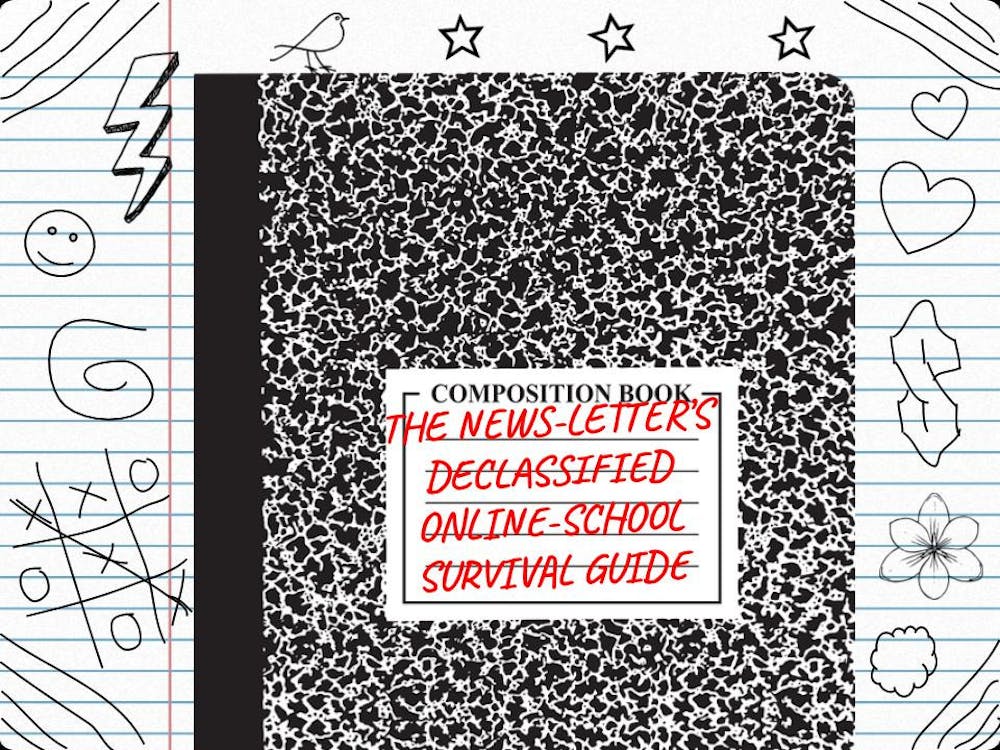I’m going to start and end this article with an apology: I’m sorry. I’m sorry for all that you’ve undoubtedly had to go through this past half-year. I’m sorry you won’t be able to have an on-campus beginning to your college experience and most of all, I’m sorry that you’ll have to take a full semester of online courses. No matter what anybody says, the simple truth cannot be denied — learning online isn’t the same. However, accepting that can be the first step to making the most of the many opportunities still available.
Hopefully, by the end of this article, you will have a better idea of how to go to college online as effectively and successfully as possible. These aren’t ideal circumstances, but if you can stay focused and concentrate on making it as good as it can be, not as good as you wish it could be, then you have a great chance of still having a positively impactful college experience.
Being proactive is the first step to success. Your professors won’t notice you just because you’re sitting in a different seat than normal. You won’t have off-the-cuff social hangouts because you ran into your friend in the library or your dorm. You won’t have a roommate who will remind you that you’re not sleeping enough and need to rework your schedule for the sake of your health. You won’t have weekly walks to class with friends or finally get lunch with that person you’ve always wanted to be close with. We may not always realize how important these interactions are, but they matter. Accepting this all as reality isn’t fun, but it’s critical to being able to succeed in college this year. We can’t make the most of what we have if we don’t first understand what we need to recreate.
Once we see what we’re missing, though, we can understand how to try and best replicate these things with what we have at our disposal. For example, try and set up a Zoom meeting with as many of your professors or TAs as possible. It won’t be the same as going to office hours, but do whatever you can to make sure that they notice and remember you. If you were once hesitant about sending emails, don’t be. Have a question you’re not sure is worth asking? Ask away. Making your mark on a professor is incredibly important, both for grading and for future recommendations. Don’t let the hurdles of online learning keep you from taking those opportunities. They won’t happen on their own, but you can still make them happen.
We’ve all had personal relationships that took a hard hit during these times. One thing that we could all do with understanding better is that most relationships are plants, not machines. They don’t run smoothly or continuously on their own — they need to be cultivated and cared for. In an online world, that means actively paying attention to the people in your life. Schedule Zooms with friend groups. Ask a classmate to have a Zoom lunch or dinner with you because they said something interesting in class that you want to pick their brain about. Have “study sessions” with friends, even if you know you won’t get much real studying done. There is nothing more important to our sanity than surrounding ourselves with good people, so don’t let those relationships wither away.
Now, when it comes to classes, there is no one right answer. Online classes are difficult. It’s hard to pay attention, it’s hard to engage effectively with the material and it’s hard to retain the information you’re learning. At the end of the day, it mostly comes down to trial and error. You need to find the methodology that suits your educational well-being in the best and most effective way. That means being honest with yourself. After every class, ask yourself: What did I just learn? Was that a satisfying educational experience and, if not, is that my fault? How could I have been better and gotten more out of that class? Sometimes, it won’t be your fault. There might be technological difficulties, or maybe your professor did a bad job. But often, you will have room for improvement, and it’s important to be open with yourself about that. If you zone out every class and don’t do anything about it, you’ll have nobody to blame but yourself.
Set up support systems. Have regular conversations with friends or family about how you’re doing in class. Talk to other students about how they’re managing. Share tips. Maybe someone you talk to will have an idea that fundamentally improves your academic performance, and maybe that idea is something neither you nor I have thought of. Not every strategy works for every person, and I can’t list every single one here. What I can do, though, is give a few suggestions that you can try and build upon to help yourself learn as much as possible.
Take thorough notes. Review classes with classmates. Set aside a space that you only use for class. Make boundaries for yourself about what activities you’ll let yourself do online during class. Try handwriting notes. Listen to lectures while standing or walking. Keep your camera on. Make sure you talk as often as is appropriate in class.
Not all these ideas are winners, but the most critical point is this: You won’t have a good time in online school if you don’t put in the effort to make it worthwhile. You’re on your own unless you do something about it. That means trying different things and seeing what sticks, it means fighting to make and maintain important relationships, and it means not allowing yourself to get complacent when it comes to your education. Success in this scenario is up to you.
Like I said at the beginning, I’m sorry. This won’t be easy, and it’s not fair. It’s not fair how much effort you’re going to need to put in just to pay attention in class or how hard it will be to make new friends. The thing is, there just isn’t really a better choice. So, I recommend doing whatever you’re capable of to maximize this experience, to learn as much as you can and to set yourself up for success as much as possible. It’s not easy, and there’s no reason to feel guilty if you struggle or hit road bumps along the way. Just remember that if you put in the effort and keep an open mine, you’ll figure it out. You can do this.





